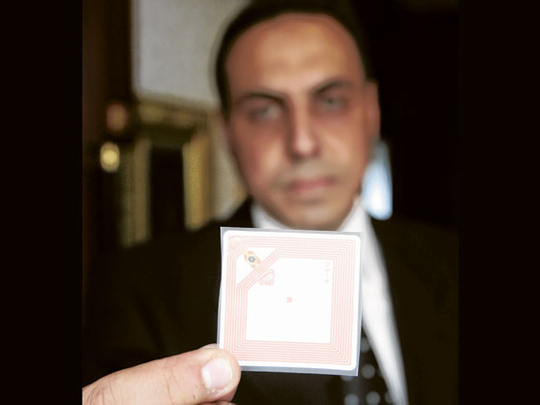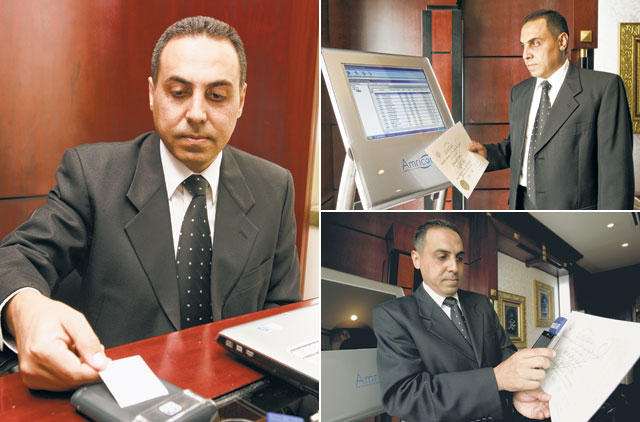
Dubai: In a digital age various forms of fraud have reached epidemic proportions, which affects organisations' financial stability and effectiveness.
Certificate fraud is of particular concern to government authorities and measures are gradually being put in place to curb dishonesty.
In the UAE universities, banks and government departments have been the first to implement Radio Frequency Identification (RFID) technology and this involves the use of smart tags on sensitive and critical documents.
Degree certificates, legal documents, trade licences, boarding passes, cheques and bank guaranteed letters fall into this category.
In the Gulf region, UAE-based company Amricon has been implementing the system for various federal departments.
"We deal with critical government documents where there can be fraud. Our main customers are governments and banks," said Amricon regional manager Tarek Awad.
In 2004 the company signed an agreement with the Department of Economic Development where all trade licences had to bear a smart tag.
In 2005 it signed an agreement with 30 banks in the UAE for bank guaranteed letters.
And it is finalising an agreement with the UAE Ministry of Health so that all licences for doctors, nurses, clinics and hospitals will need to bear a smart tag.
Saudi Arabia's ministry of justice and Bahrain's ministry of information also uses the RFID labels supplied by Amricon, said Awad.
Mandatory
Since 2007 the Ministry of Higher Education and Scientific Research (MOHESR) has made it mandatory for all university degrees issued in the UAE to bear an RFID label or smart tag.
Currently 30 universities are using the Smart Document Attestation solution to prevent fraud and reduce forgeries.
"In 2007 we signed an agreement with the MOHESR and 50 universities in the UAE. Until now only 30 are using the system because the other 20 don't yet have graduates," said Awad.
Previously the attestation of documents at the MOHESR for degrees used to take three days to a week because emails and faxes needed to be exchanged.
"Now the process takes seconds as the documents are scanned with a reader," Awad said.
Sharjah-based Skyline University College spokesman Nitin Anand said every university used some sort of security when they printed their degree certificates.
Traditional holograms and strips built into the paper to be scanned with infrared devices are still used.
The smart tags are another layer of protection for genuine students, universities and the ministry.
Fakes coming in
Fake degree certificates are not much of a problem within the UAE. However, fake high school and degree certificates coming in are.
Anand said Skyline had received fake certificates from applicants in India, Nigeria and China in the past though this is on the decline due to other measures in place.
Anand said he hoped it would be implemented worldwide as a central system so that attestation would become hassle free.
Currently verification companies operate in various countries to authenticate degree certificates. American University in Dubai acting registrar Matilda Jabbour said the smart tags: "Ensure that our students' certificates, and their pertaining encoded data, are more protected and secure, given the fraudulent practices available in the market today".
"No longer are the traditional security features, [such as] signatures, holograms and bar codes, enough to protect those valuable certificates," she said
Information stored
There are two parts to the system. Amricon gives universities smart tag readers, writing devices and encoding machines. The MOHESR receives smart tag readers. The equipment and training is free of charge however universities bear the cost of Dh200 for each smart tag. Amricon regional manager Tareq Awad said that Dh50 from this fee goes to the universities' research and development initiatives.
Universities stick smart tag labels onto degree certificates when they issue them to graduates. Information is stored on the tag. When graduates go to the MOHESR their degrees are scanned within seconds using a reading device. "It's like a Salik tag. The information stays on the certificate for a lifetime and all steps and changes are stored on the tag which is a storage data device of about 4KB or 8KB," Awad said.













